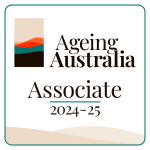Overseas Nurses: Key to Australia’s Healthcare Crisis 2025

The Critical Role of Overseas Registered Nurses in Australia’s Healthcare Future
Australia’s healthcare system stands at a critical juncture, facing an unprecedented challenge that threatens to undermine the quality and accessibility of patient care across the nation. By 2025, the country is projected to experience a staggering shortfall of 85,000 nurses, a number that is expected to balloon to 123,000 by 2030. This looming crisis has sparked urgent discussions and innovative solutions, with one strategy emerging as a beacon of hope: the recruitment and integration of overseas Registered Nurses (RNs) into the Australian healthcare workforce.
The benefits of hiring overseas RNs in Australia are multifaceted, addressing immediate needs while offering long-term advantages that extend far beyond merely filling vacant positions. From enhancing cultural diversity in healthcare settings to driving economic growth and maintaining Australia’s world-renowned standards of medical care, the impact of these skilled professionals is both profound and far-reaching.
The Historical Context of Nursing Shortages in Australia
Australia’s struggle with nursing shortages is not a recent phenomenon. For decades, the country has grappled with inadequate staffing levels, particularly in rural and remote areas where attracting and retaining healthcare professionals has been an ongoing challenge. This longstanding issue has been exacerbated by several factors:
- An Aging Population: As Australia’s population ages, the demand for healthcare services has surged, placing increased pressure on an already strained system.
- Healthcare Facility Expansion: The expansion of healthcare facilities across the country has created more positions that need to be filled, widening the gap between supply and demand.
- Rural and Remote Challenges: The difficulty in attracting healthcare professionals to non-urban areas has led to chronic understaffing in many regional hospitals and clinics.
The COVID-19 pandemic brought these issues into sharp focus, highlighting the critical need for skilled healthcare professionals across all regions of Australia. In response, the Australian government has taken significant steps, including a substantial investment of $90 million in the 2024-25 budget specifically aimed at growing the healthcare workforce.
The Multifaceted Benefits of Hiring Overseas RNs
Addressing Workforce Shortages
The most immediate and apparent benefit of hiring overseas RNs is their ability to fill critical gaps in various specialties and healthcare settings. This influx of skilled professionals ensures:
- Continuity of Care: By maintaining adequate staffing levels, overseas RNs help ensure that patients receive consistent, high-quality care without interruption.
- Reduced Strain on Existing Staff: The addition of overseas RNs alleviates the burden on current healthcare workers, reducing burnout and improving overall job satisfaction.
- Specialized Expertise: Many overseas RNs bring specialized skills and experiences that can enhance the capabilities of healthcare teams across various departments.
Enhancing Cultural Diversity in Healthcare
Australia’s population is increasingly diverse, and the healthcare system must evolve to meet the needs of all communities. Overseas RNs play a crucial role in this evolution by:
- Bringing Cultural Knowledge and Language Skills: Their diverse backgrounds enable better communication with patients from various cultural and linguistic backgrounds, improving patient understanding and compliance with treatment plans.
- Fostering Inclusive Healthcare Environments: The presence of overseas RNs contributes to creating more inclusive and culturally sensitive healthcare settings, benefiting both patients and staff.
- Bridging Cultural Gaps: Their unique perspectives can help healthcare teams navigate cultural nuances that might otherwise lead to misunderstandings or suboptimal care.
Economic Benefits and Return on Investment
The economic impact of hiring overseas RNs extends far beyond the immediate filling of vacant positions:
- Significant Return on Investment: Studies have shown that for every $1 invested in better health, there is a return of between $2 and $4. This demonstrates the substantial economic value of strengthening the healthcare workforce.
- Long-term Economic Advantages: A robust healthcare system supported by adequate staffing contributes to overall population health, reducing the economic burden of chronic diseases and improving workforce productivity.
- Stimulating Local Economies: Overseas RNs contribute to local economies through their spending, housing needs, and participation in community life, particularly in rural and remote areas.
Maintaining High-Quality Healthcare Services
Australia’s healthcare system is renowned for its high standards, and overseas RNs play a crucial role in maintaining and enhancing this reputation:
- Diverse Perspectives Driving Innovation: The unique experiences and training backgrounds of overseas RNs can lead to innovative approaches to patient care and healthcare delivery.
- Global Best Practices: Many overseas RNs bring knowledge of international best practices, contributing to the continuous improvement of healthcare services in Australia.
- Maintaining Standards During Growth: As the healthcare system expands to meet growing demands, overseas RNs help ensure that the quality of care remains consistently high across all settings.
Latest Statistics and Trends
The urgency of addressing nursing shortages in Australia is underscored by recent statistics and trends:
- Projected Nursing Shortfall: By 2025, Australia is expected to face a shortfall of approximately 85,000 nurses, increasing to 123,000 by 2030.
- Recent Recruitment Success: In the past financial year, 16,622 internationally qualified nurses joined the Australian health system, nearly triple the number from 2018/19.
- Streamlined Registration Process: Starting March 2025, a new streamlined registration process will be implemented, significantly reducing wait times for eligible overseas nurses.
These figures highlight both the scale of the challenge and the proactive steps being taken to address it. The substantial increase in international nurse recruitment demonstrates Australia’s commitment to leveraging global talent to strengthen its healthcare workforce.
Impact Analysis: The Ripple Effect of Overseas RNs
The integration of overseas RNs into Australia’s healthcare system has far-reaching effects:
Improved Patient Care
With adequate staffing levels, healthcare facilities can provide more attentive and comprehensive care to patients. This leads to:
- Reduced wait times for treatments and procedures
- More personalized care and attention to individual patient needs
- Better patient outcomes and satisfaction rates
Reduced Workload and Burnout Among Existing Staff
The addition of overseas RNs helps distribute the workload more evenly, resulting in:
- Lower stress levels among healthcare staff
- Reduced rates of burnout and turnover
- Improved job satisfaction and work-life balance for all healthcare professionals
Enhanced Healthcare System Resilience and Adaptability
A diverse workforce with varied experiences and skills makes the healthcare system more resilient and adaptable to challenges:
- Better preparedness for health crises and emergencies
- Increased capacity to handle sudden surges in patient numbers
- Greater flexibility in staffing and resource allocation
Comparison with Alternatives
While hiring overseas RNs is a powerful strategy, it’s essential to consider how it compares to alternative approaches:
| Approach | Advantages | Disadvantages |
|---|---|---|
| Local Nursing Education |
|
|
| Temporary Work Visas |
|
|
| Internal Workforce Retention |
|
|
While each approach has its merits, the recruitment of overseas RNs offers a balanced solution that addresses immediate needs while providing long-term benefits to the healthcare system.
Current Controversies and Debates
The integration of overseas RNs into Australia’s healthcare system is not without its challenges and debates:
Integration Challenges
- Cultural Adaptation: Concerns about how overseas RNs will adapt to Australian healthcare culture and practices.
- Language Barriers: Debates about the level of language proficiency required to ensure effective communication with patients and colleagues.
Workforce Distribution Concerns
- Urban vs. Rural Placement: Discussions about ensuring equitable distribution of overseas RNs between urban centers and rural areas that often face more severe shortages.
- Specialty Allocation: Debates on how to balance the allocation of overseas RNs across different medical specialties based on need.
Balancing International Recruitment with Local Workforce Development
- Impact on Local Nursing Education: Concerns about how increased international recruitment might affect enrollment in local nursing programs.
- Long-term Workforce Planning: Debates on striking the right balance between international recruitment and investing in domestic nursing education and retention strategies.
How To: Streamlined Registration Process for Overseas Nurses (Effective March 2025)
The new streamlined registration process for overseas nurses, set to take effect in March 2025, aims to simplify and accelerate the integration of qualified international nurses into the Australian healthcare system. Here’s a step-by-step guide to the process:
1. Pre-application Preparation
- Eligibility Check: Ensure you have practiced for at least 1,800 hours since 2017 in a comparable country (e.g., UK, Ireland, USA, Canada, New Zealand).
- Document Gathering: Collect all necessary documentation, including proof of qualifications, work experience, and identity documents.
- Language Proficiency: If required, take and pass an approved English language test (e.g., IELTS, OET).
- Eligibility Check: Ensure you have practiced for at least 1,800 hours since 2017 in a comparable country (e.g., UK, Ireland, USA, Canada, New Zealand).
- Document Gathering: Collect all necessary documentation, including proof of qualifications, work experience, and identity documents.
- Language Proficiency: If required, take and pass an approved English language test (e.g., IELTS, OET).
2. Documentation Requirements
- Certified copies of nursing qualifications
- Detailed employment history with references
- Proof of identity (passport, birth certificate)
- Criminal history check from your home country
- English language test results (if applicable)
- Certified copies of nursing qualifications
- Detailed employment history with references
- Proof of identity (passport, birth certificate)
- Criminal history check from your home country
- English language test results (if applicable)
3. Application Submission Process
- Online Application: Submit your application through the Australian Health Practitioner Regulation Agency (AHPRA) online portal.
- Fee Payment: Pay the required application and registration fees.
- Document Upload: Upload all required documents in the specified format.
- Online Application: Submit your application through the Australian Health Practitioner Regulation Agency (AHPRA) online portal.
- Fee Payment: Pay the required application and registration fees.
- Document Upload: Upload all required documents in the specified format.
4. Post-application Steps and Timeline
- Application Review: AHPRA will review your application and documentation.
- Additional Information: If required, AHPRA may request additional information or clarification.
- Assessment: Your qualifications and experience will be assessed against Australian standards.
- Registration Decision: You will be notified of the decision regarding your registration.
- AHPRA Registration: Upon approval, you will be registered with AHPRA and receive your registration number.
- Application Review: AHPRA will review your application and documentation.
- Additional Information: If required, AHPRA may request additional information or clarification.
- Assessment: Your qualifications and experience will be assessed against Australian standards.
- Registration Decision: You will be notified of the decision regarding your registration.
- AHPRA Registration: Upon approval, you will be registered with AHPRA and receive your registration number.
5. Tips for a Smooth Transition to Australian Healthcare System
- Cultural Orientation: Participate in cultural orientation programs offered by employers or professional organizations.
- Continuing Professional Development: Familiarize yourself with Australian CPD requirements and start planning your ongoing education.
- Networking: Join professional nursing associations to connect with peers and stay informed about the Australian healthcare landscape.
- Mentorship: Seek out mentorship opportunities with experienced Australian nurses to ease your transition.
- Cultural Orientation: Participate in cultural orientation programs offered by employers or professional organizations.
- Continuing Professional Development: Familiarize yourself with Australian CPD requirements and start planning your ongoing education.
- Networking: Join professional nursing associations to connect with peers and stay informed about the Australian healthcare landscape.
- Mentorship: Seek out mentorship opportunities with experienced Australian nurses to ease your transition.
By following this streamlined process, eligible overseas nurses can expect a significantly reduced wait time for registration, allowing them to begin their Australian nursing career more quickly and efficiently.
FAQ Section
Q: What qualifications are required for overseas RNs to work in Australia?
A: Overseas RNs must have completed a nursing program equivalent to an Australian Bachelor of Nursing degree. They must also meet English language proficiency requirements and have a minimum of 1,800 hours of practice since 2017 in a comparable country to be eligible for the streamlined registration process starting March 2025.
Q: How does the cost of living in Australia compare to other countries for nurses?
A: The cost of living in Australia can be higher than in many other countries, particularly in major cities. However, nursing salaries in Australia are generally competitive, often offsetting the higher living costs. It’s important to research specific locations and compare them to your current situation.
Q: Are there language proficiency requirements for overseas RNs?
A: Yes, overseas RNs must demonstrate English language proficiency. This is typically done through standardized tests such as the International English Language Testing System (IELTS) or the Occupational English Test (OET). The required scores may vary, so it’s essential to check the latest requirements with AHPRA.
Q: What support systems are in place for overseas RNs adjusting to life in Australia?
A: Many healthcare facilities offer orientation programs, mentorship opportunities, and cultural adaptation support for overseas RNs. Additionally, professional nursing associations often provide resources and networking opportunities. Some employers may also offer assistance with housing and relocation.
Q: How does the career progression for overseas RNs compare to local nurses?
A: Once registered, overseas RNs have the same career progression opportunities as local nurses. This includes specialization, advanced practice roles, management positions, and academic careers. Continuing professional development is encouraged and often supported by employers.
Challenges and Solutions
Challenge: Cultural Adaptation and Integration
Solution: Comprehensive orientation and mentorship programs
- Implement cultural competency training for all staff
- Pair overseas RNs with local mentors for guidance and support
- Organize social events and team-building activities to foster integration
Challenge: Language Barriers
Solution: Targeted language support and communication training
- Offer ongoing English language courses tailored to medical terminology
- Provide communication workshops focusing on Australian healthcare contexts
- Implement a buddy system for language support in clinical settings
Challenge: Recognition of Overseas Qualifications
Solution: Streamlined assessment processes and bridging programs
- Develop clear guidelines for qualification equivalency
- Offer bridging courses to address any gaps in knowledge or skills
- Establish fast-track assessment processes for nurses from comparable healthcare systems
Ethical Considerations and Best Practices
Ensuring Fair Recruitment Practices
- Adhere to the WHO Global Code of Practice on the International Recruitment of Health Personnel
- Implement transparent recruitment processes with clear criteria and expectations
- Offer comprehensive employment packages that include support for relocation and integration
Maintaining Cultural Sensitivity in the Workplace
- Provide ongoing cultural competency training for all staff
- Establish policies that promote respect for cultural diversity
- Create forums for open dialogue about cultural differences and challenges
Balancing International Recruitment with Local Workforce Development
- Invest in local nursing education programs alongside international recruitment
- Develop retention strategies for both local and international nurses
- Create pathways for overseas RNs to contribute to local nursing education and mentorship
Upholding Patient Safety Standards During Accelerated Registration
- Implement rigorous competency assessments as part of the registration process
- Provide comprehensive orientation programs focusing on Australian healthcare standards and practices
- Establish ongoing performance monitoring and support systems for newly registered overseas RNs
Success Stories and Testimonials
Case Study: Successful Integration of Overseas RNs in Rural Healthcare Settings
In 2024, a regional hospital in rural New South Wales implemented a comprehensive integration program for overseas RNs. The program included:
- A two-week orientation covering local healthcare practices and cultural norms
- Pairing with local mentors for ongoing support
- Regular check-ins with management to address any challenges
Results after one year:
- 95% retention rate of overseas RNs
- Improved patient satisfaction scores
- Reduced overtime hours for existing staff by 30%
Testimonial from a Healthcare Facility Manager
“The integration of overseas RNs has been transformative for our facility. Not only have they filled critical staffing gaps, but they’ve also brought fresh perspectives and innovative approaches to patient care. Their diverse backgrounds have enriched our workplace culture and improved our ability to care for our increasingly diverse patient population. The initial investment in comprehensive orientation and support has paid off manifold in terms of staff satisfaction, patient outcomes, and overall operational efficiency.”
Tools, Equipment, and Resources
Online Platforms for Overseas RN Registration and Job Search
- Australian Health Practitioner Regulation Agency (AHPRA) Portal: The official platform for nurse registration in Australia.
- HealthcareLink: A job search platform specifically for healthcare professionals in Australia.
- Nurse.com International: Offers job listings and resources for international nurses seeking work in Australia.
Cultural Competency Training Resources
- Australian College of Nursing Cultural Safety Course: Online training program focused on cultural safety in healthcare settings.
- SBS Cultural Competence Program: A comprehensive online course covering various aspects of cultural competence.
Professional Development Opportunities for Overseas RNs
- Australian College of Nursing CPD Portal: Offers a wide range of continuing professional development courses.
- Rural Health Pro: Provides specialized training and resources for healthcare professionals working in rural and remote areas.
- Specialty Nursing Associations: Organizations like the Australian College of Critical Care Nurses or the Australian Primary Health Care Nurses Association offer specialized training and networking opportunities.
Conclusion
The integration of overseas Registered Nurses into Australia’s healthcare system represents a critical and multifaceted solution to the country’s looming nursing shortage. By addressing immediate workforce needs, enhancing cultural diversity in healthcare settings, and contributing to long-term economic benefits, overseas RNs play an indispensable role in maintaining and improving the quality of healthcare across the nation.
The projected shortfall of 85,000 nurses by 2025, escalating to 123,000 by 2030, underscores the urgency of this initiative. The recent success in recruiting over 16,000 internationally qualified nurses in the past financial year, coupled with the upcoming streamlined registration process set to launch in March 2025, demonstrates Australia’s commitment to leveraging global talent to strengthen its healthcare workforce.
However, the path forward is not without challenges. Ensuring smooth cultural integration, addressing language barriers, and balancing international recruitment with local workforce development are ongoing concerns that require thoughtful strategies and continuous evaluation.
The benefits of hiring overseas RNs extend far beyond filling vacant positions. These professionals bring diverse perspectives, contribute to innovation in patient care, and help create more inclusive healthcare environments. Their presence enhances the resilience and adaptability of Australia’s healthcare system, better equipping it to meet the evolving needs of a diverse population and face future challenges.
As Australia continues to navigate this critical period in its healthcare history, the role of overseas RNs will remain pivotal. Their contributions will not only help address immediate staffing needs but also play a crucial part in shaping a more robust, diverse, and effective healthcare system for the future.
The success of this initiative relies on ongoing support, comprehensive integration programs, and a commitment to ethical recruitment practices. By embracing the valuable contributions of overseas RNs and providing them with the necessary support and opportunities for growth, Australia can ensure a brighter, healthier future for all its residents.
Additional Resources
- Australian Health Practitioner Regulation Agency (AHPRA) Website: https://www.ahpra.gov.au/
- Official resource for registration requirements, processes, and updates for healthcare professionals in Australia.
- Department of Health and Aged Care – International Recruitment Initiatives: https://www.health.gov.au/initiatives-and-programs/international-recruitment
- Information on government initiatives and programs related to international healthcare worker recruitment.
- Australian Nursing and Midwifery Federation: https://www.anmf.org.au/
- Professional association offering support, resources, and advocacy for nurses and midwives in Australia.
- Nurses and Midwives Support: https://www.nmsupport.org.au/
- National support service for nurses, midwives, and students, offering confidential counseling and resources.
- Rural Health Workforce Australia: https://rhwa.org.au/
- Organization focused on improving health workforce distribution in rural and remote Australia, offering resources and job opportunities.
These resources provide comprehensive information, support, and opportunities for overseas RNs looking to work in Australia, as well as for healthcare organizations seeking to recruit international talent. They offer valuable insights into the registration process, professional development opportunities, and the broader context of healthcare in Australia.









